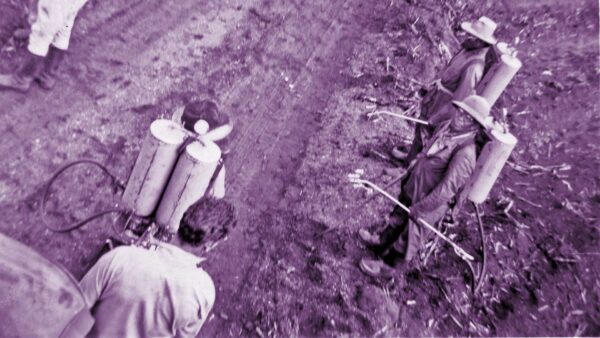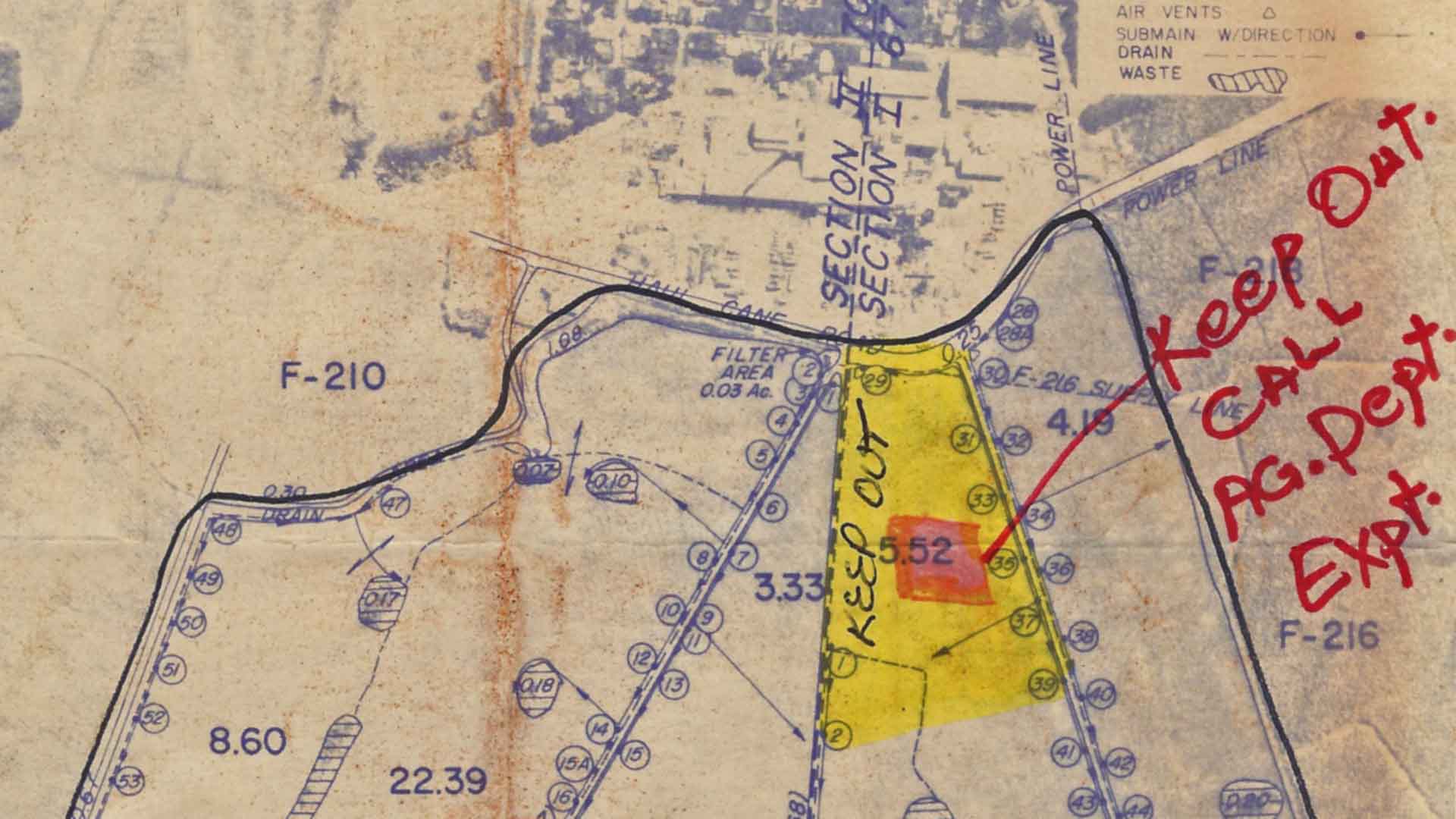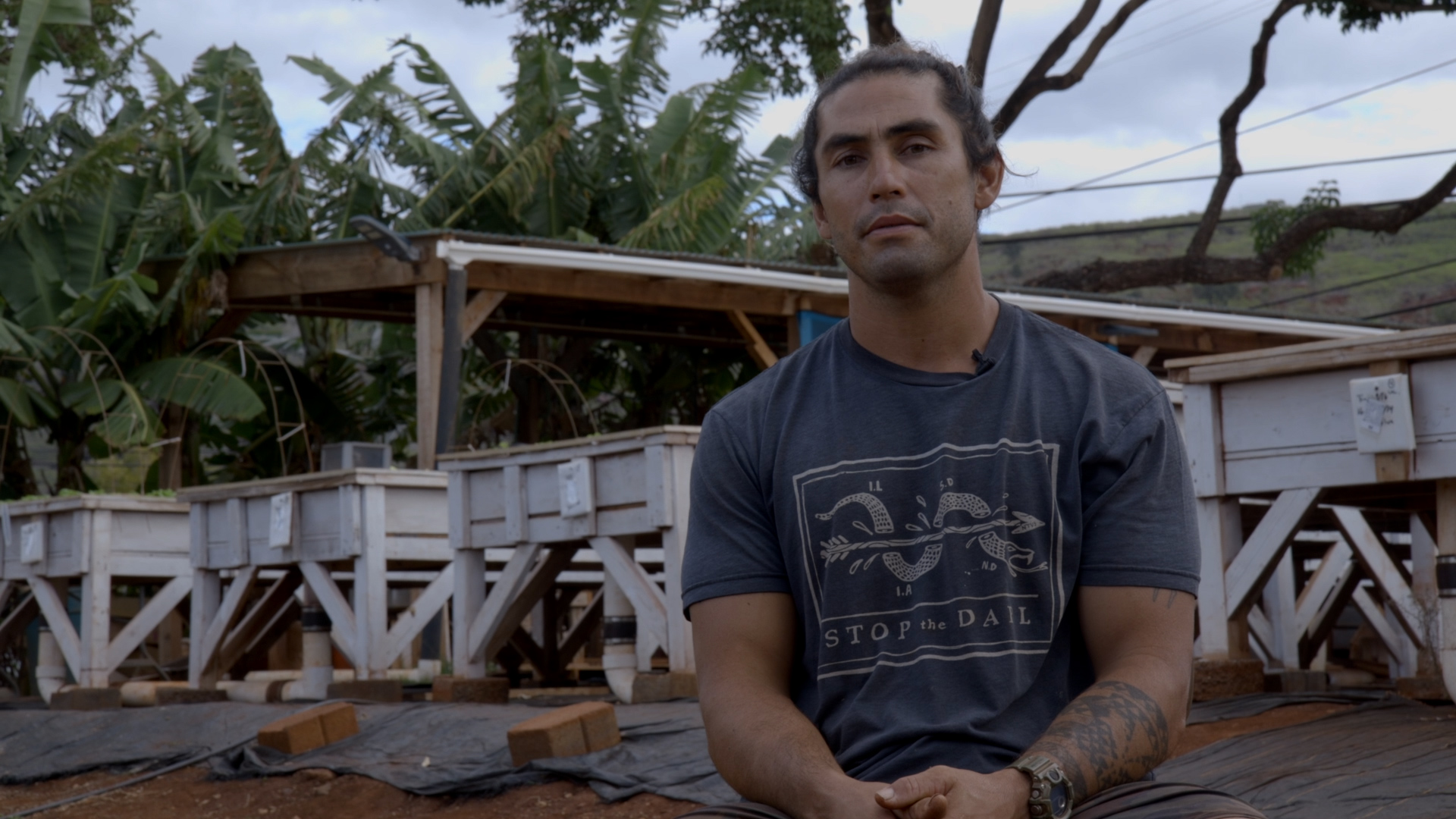Logline
After more than a century of extractive and toxic farming from both the sugar and biotech industries on the Hawaiian island of Kauaʻi, The Experiment Station looks towards a growing food sovereignty movement led by Native Hawaiians.
Synopsis
In 1908, the first Agricultural Experiment Station was built on the Hawaiian island of Kauaʻi to test various pesticides and other chemicals used to expand its largest economy at the time: the sugar and pineapple industry. There was little oversight into the environmental safety of the chemicals, or into the safety of the workers employed to distribute them onto the crops. Many of these chemicals are still found in the soil today. The next industry to follow were the world’s largest biotech companies (Monsanto, DowDupont, Syngenta) who continued to use Hawaiʻi as an open-air testing facility of lethal chemicals, severely impacting the health of the environment and its residents.
After years of active struggle from locals and grassroots activists, the biotech industry is now beginning to retreat. This moment offers a unique opportunity for small-scale farmers to reimagine a self-sustainable model that stands in opposition to Hawaii’s long reliance on imports and a plantation-labor hierarchy. The restructuring of Hawaii’s economy, once seen as an impossibility, has become an ecological necessity for survival.
The Experiment Station
$400.00
Goal-
$400.00
Raised -
0
Days to go
My in-progress documentary, The Experiment Station, is a companion to my recent feature, Cane Fire. Cane Fire examined the past and present of the Hawaiian island of Kauaʻi, interweaving four generations of family history, numerous Hollywood productions, and troves of found footage to create a kaleidoscopic portrait of the economic and cultural forces that have cast Indigenous and working-class residents as “extras” in their own story.
The Experiment Station is an expansion of Cane Fire’s themes of land control and labor on Kauaʻi but with a specific focus on the progression of the biotech industry over the years. Like Cane Fire, the focus will be on people directly impacted rather than experts or spokespeople speaking broadly on a topic.
The filming for this project began in 2014 and continued into 2018 simultaneously with the production of Cane Fire. In early 2022 I received a NYSCA grant to continue researching the HSPA (Hawaii Sugar Planters Association) archives at the University of Hawaii, as well as to begin filming with the local farmers embarking on this historic challenge to Hawaii’s economy. I’m currently seeking crucial production funds to continue filming with these farmers through this winter with the goal of completing the project by Fall of 2023.
Anthony Banua-Simon is an award-winning documentary filmmaker and editor named one of Filmmaker Magazine’s 2021 “25 New Faces of Independent Film” and DOC NYC’s 2022 “40 Under 40”. His debut feature documentary, Cane Fire, was an official selection of the 2020 Hot Docs International Film Festival as well as the 2021 MoMA Doc Fortnight and won “Best Documentary Feature” at the 2020 Indie Memphis Film Festival and the 2021 Los Angeles Asian Pacific Film Festival. Cane Fire was distributed theatrically by Cinema Guild and is available to stream on The Criterion Channel. The film has received praise in RogerEbert.com, The Wrap, Jacobin, Film Threat, and Hyperallergic among several other outlets.
His short documentary about two former workers of the Domino Sugar Refinery, Third Shift, won “Best Short Documentary” at the 2014 Brooklyn Film Festival and was previously streaming on The Criterion Channel. He’s featured in The New York Times, BOMB Magazine, Screen Slate, Pioneer Works Broadcast, and HuffPost.
Anthony attended The Evergreen State College and was a fellow at the UnionDocs Collaborative Studio Program. He’s currently a member of the volunteer-run Spectacle Theater in Brooklyn, NY.




